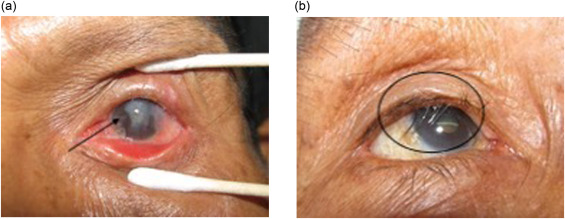
Iliyasu Abdulahi Bah
For decades, trachoma — a painful and infectious eye disease — was one of Kaduna State’s most persistent public health challenges. In communities across the state, especially in rural and underserved areas, countless residents lived with the fear of blindness caused by this neglected tropical disease.
Today, that fear has finally been laid to rest.
In a remarkable triumph for public health, the Kaduna State Government has officially announced the elimination of trachoma, marking a historic turning point in the state’s health journey. The declaration was made during a close-out ceremony for the Trachoma Trichiasis Intervention Programme, which celebrated years of painstaking effort and collaboration among the Kaduna State Ministry of Health, the Federal Ministry of Health, and the international non-profit organization Sightsavers.
Trachoma, caused by the bacterium Chlamydia trachomatis, spreads easily through personal contact and by flies that thrive in poor sanitation. Left untreated, it can lead to irreversible blindness — a fate that once loomed over thousands of Kaduna residents.
Speaking at the ceremony on Wednesday, the Permanent Secretary of the Kaduna State Ministry of Health, Aisha Abubakar, described the elimination of trachoma as a “historic triumph” made possible through coordinated, evidence-based interventions implemented across all 23 local government areas of the state.
“Through the comprehensive SAFE strategy — Surgery for advanced cases, Antibiotics to treat infection, Facial cleanliness, and Environmental improvement to reduce transmission — we have made trachoma ancient history in Kaduna State,” Abubakar declared proudly.
The impact of the intervention was immense. In Igabi Local Government Area alone, health workers administered antibiotics to over 558,000 residents, while 683 patients suffering from the blinding stage of the disease, known as Trachomatous Trichiasis, underwent corrective eye surgeries across 11 endemic LGAs.
For Mrs. Teyil Wamyil Mshelia, Country Coordinator for Trachoma at Sightsavers, the day symbolised more than just a medical milestone — it was a celebration of determination, collaboration, and hope.
“With the elimination of trachoma in Kaduna State, we have successfully removed one of the major public health challenges in the state,” she said. “We have met all the stringent World Health Organisation (WHO) requirements to ensure that trachoma is no longer a public health threat here.”
She attributed Kaduna’s success to widespread public awareness campaigns, extensive training for local health workers, and strong community participation that gave the people a sense of ownership of the programme.
According to the World Health Organisation (WHO), trachoma remains a public health problem in 32 countries, responsible for blindness or visual impairment in about 1.9 million people worldwide. As of April 2025, around 103 million people still live in trachoma-endemic regions, facing the risk of blindness if the disease is not controlled.
The infection spreads through personal contact — via hands, clothes, bedding, or contaminated surfaces — as well as through flies that have come in contact with discharge from the eyes or nose of infected persons. Repeated infections over time cause the eyelashes to turn inward, scraping the cornea and leading to severe pain or permanent blindness.
In 2024 alone, the WHO reported that 87,349 people received surgical treatment for advanced stages of trachoma, while 44.4 million were treated with antibiotics. Global antibiotic coverage stood at 39 percent, highlighting both progress and the ongoing challenge of eliminating the disease globally.
Kaduna’s success now stands as a beacon of hope for other Nigerian states still battling trachoma. It demonstrates that with strategic partnerships, strong political will, and active community engagement, even the most entrenched public health problems can be defeated.
As applause echoed through the ceremony hall, one message rang clear — trachoma may once have blinded Kaduna, but vision, collaboration, and commitment have restored its sight and hope.
